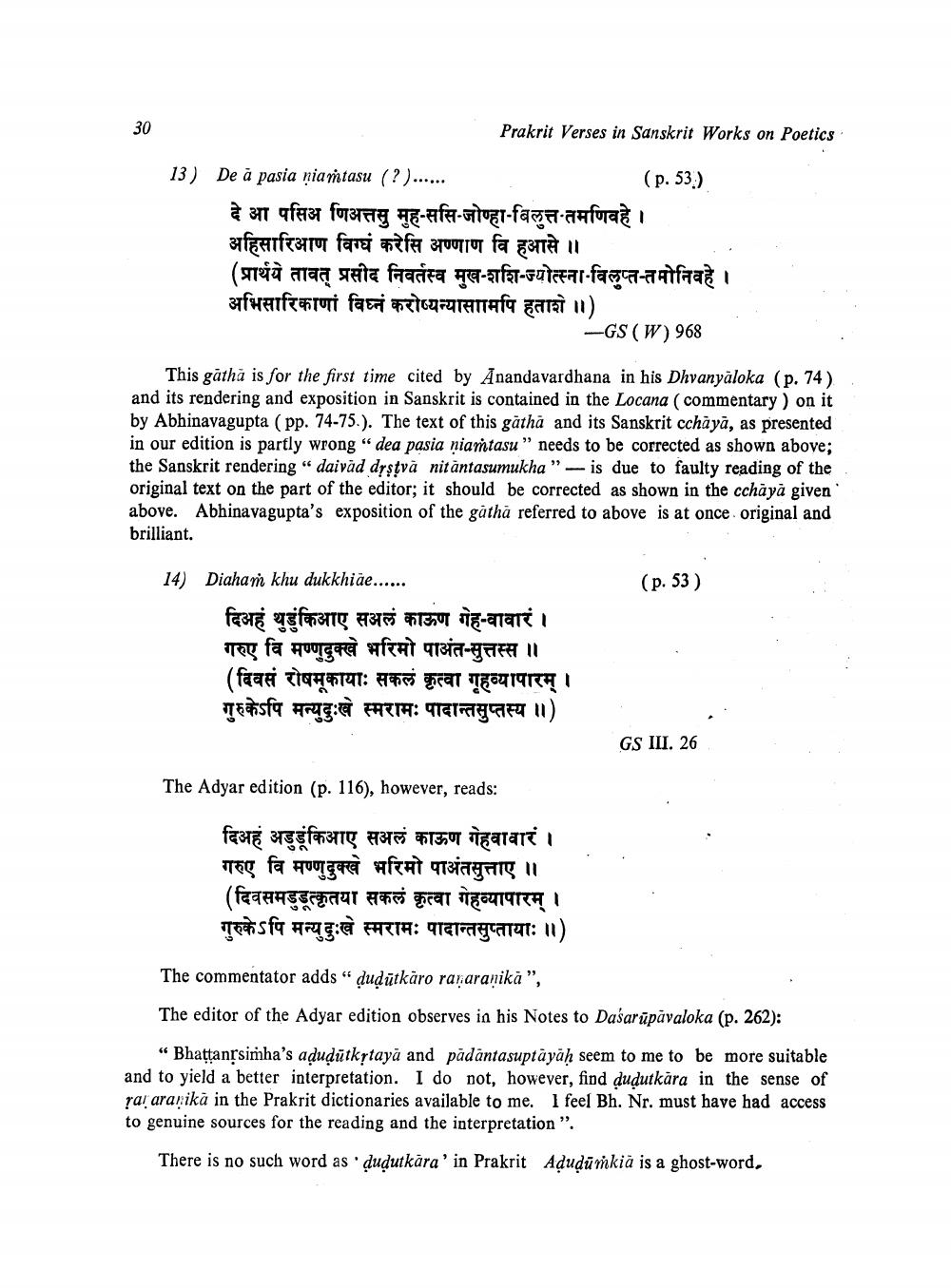________________
30
13) De a pasia niamtasu ( ? ) ......
दे आपसि णित्तसु मुह-ससि - जोव्हा - विलुत्त तमणिवहे । अहिसारिआण विग्घं करेसि अण्णाण वि हआसे ॥ (प्रार्थये तावत् प्रसीद निवर्तस्व मुख-शशि- ज्योत्स्ना विलुप्त तमोनिवहे । अभिसारिकाणां विघ्नं करोष्यन्यासामपि हताशे ॥ )
-GS (W) 968
Prakrit Verses in Sanskrit Works on Poetics (p. 53.)
This gatha is for the first time cited by Anandavardhana in his Dhvanyaloka (p. 74) and its rendering and exposition in Sanskrit is contained in the Locana (commentary) on it by Abhinavagupta ( pp. 74-75 ). The text of this gāthā and its Sanskrit cchāyā, as presented in our edition is partly wrong" dea pasia niamtasu" needs to be corrected as shown above; the Sanskrit rendering " daivad drstva nitantasumukha" is due to faulty reading of the original text on the part of the editor; it should be corrected as shown in the cchaya given above. Abhinavagupta's exposition of the gatha referred to above is at once original and brilliant.
14) Diaham khu dukkhiãe......
दिअहं थुडुंकिआए सअलं काऊण गेह-वावारं । गरु वि मण्णुदुक्ख भरिमो पाअंत-सुत्तस्स ॥ ( दिवस रोषमूकायाः सकलं कृत्वा गृहव्यापारम् । गुरुकेऽपि मन्युदुःखे स्मरामः पादान्तसुप्तस्य ॥ )
The Adyar edition (p. 116), however, reads:
fare अडकिए अलं काऊण गेहवावारं । ror वि मण्णुदुक्ख भरिमो पाअंतसुताए । ( दिवस मडुत्कृतया सकलं कृत्वा गेहव्यापारम् । गुरुकेऽपि मन्युदुःखे स्मरामः पादान्तसुप्तायाः ॥ )
(p. 53)
GS III. 26
The commentator adds “ dudūtkāro ranaranikā",
The editor of the Adyar edition observes in his Notes to Dasarupavaloka (p. 262):
"Bhattanṛsimha's aḍuḍutkṛtaya and pādāntasuptāyāḥ seem to me to be more suitable and to yield a better interpretation. I do not, however, find duḍutkara in the sense of yar aranikā in the Prakrit dictionaries available to me. I feel Bh. Nr. must have had access to genuine sources for the reading and the interpretation ".
There is no such word as dudutkara' in Prakrit Aduḍumkiä is a ghost-word.




